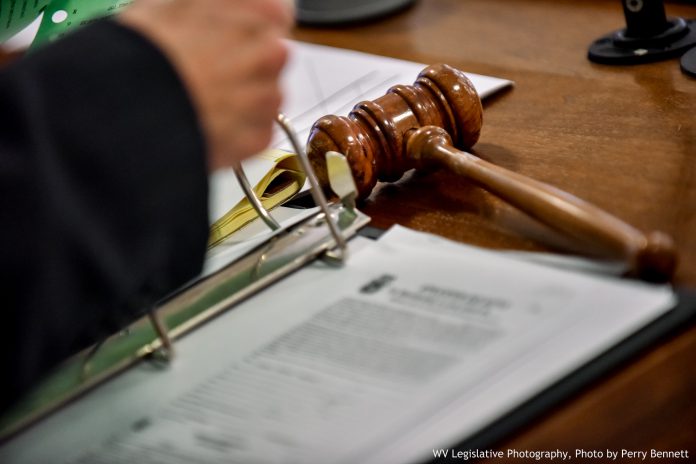As of 4 p.m., Wednesday, January 18th, 2012, the eighth day of the 2nd session of the 80th Legislature, 816 bills have been introduced in the House of Delegates. Of those, three passed and have been sent to the Senate for consideration. The bills passed by the House were:
House Bill 2402 would redefine the term “public record” as it is used in the Freedom of Information Act. According to the bill, “public record” means any writing containing information relating to the conduct of the public’s business, prepared, owned and retained by a public body.
House Bill 2521 would eliminate the requirement of serving domestic violence orders by certified mail. Domestic violence orders would be able to be served by publication in the last known county of the respondent after personal serving is unsuccessful. The respondent must also be simultaneously served via first class mail to all known addresses they have had.
House Bill 3128 would make any person seeking expungement of criminal records, if he/she was found not guilty or if the charges have been dismissed. The person would file a civil petition to expunge all records relating to the arrest, charge or other matters arising out of the arrest or charge. This bill also states that there should be no filing fees charged or costs assessed for filing for a petition for expungement.
A Sampling of the Bills Introduced in the House
House Bill 2002 would deny course credit to those who have a certain number of unexcused absences from school. For those schools that use block scheduling, any student who misses nine days or more in a semester, and whose absences are unexcused will not get credit for the course or courses. If the school is not using block scheduling, any student who has 18 unexcused absences in a year will not receive the credit.
House Bill 2036 would increase the penalties for exposing children to methamphetamine manufacturing. If any person 18 years or older knowingly causes or allows a child to be present in a location where methamphetamine is being manufactured, that person would be guilty of a felony. If convicted the person would be imprisoned in state prison for 5 to 25 years.
House Bill 2045 would add sexual orientation to the Human Rights Act, which prohibits discrimination in employment and places of public accommodations. This bill would also add age and sexual orientation to the Fair Housing Act, which prohibits discrimination in housing.
House Bill 2050 would prohibit employers and labor unions from requiring employees to become or remain members of labor unions as a condition of employment.
House Bill 2071 would require West Virginia Secondary School Activities Commission to adopt rules to provide for use of neck braces by football players in interscholastic athletic football events. The West Virginia Secondary School Activities Commission would be made up of principals or their representatives.
House Bill 2119 would eliminate, to the maximum extent possible, the use of vaccines that contain mercury. The bill allows for a vaccine that contains a trace amount of mercury to be administered, as defined by the Food and Drug Administration (FDA) if a mercury-free vaccine is unavailable.
House Bill 2121 would provide state health care services for all active and inactive duty military personnel.
House Bill 2428 would require that a preliminary breath analysis of a surviving driver be done to determine blood alcohol content. This preliminary test would be mandatory when law enforcement officers are investigating an automobile accident involving the death of any person.
House Bill 2807 would give the Director of the Office of Miners’ Health, Safety and Training some flexibility when determining the appropriate penalty for operators who do not provide immediate notice upon the occurrence of a mining accident.
House Bill 4103 would call for the consolidation of government services and enforcement of laws pertaining to the motor carrier industry. The bill authorizes the Department of Motor Vehicles (DMV) to take the lead role in this consolidation. The bill requires all affected agencies to cooperate, aid and assist the (DMV) in implementation of the consolidation. The division would solicit experience and expertise and address concerns of the affected agencies in the development of the plan of consolidation. The DMV would also report to the Legislature a plan to consolidate.

